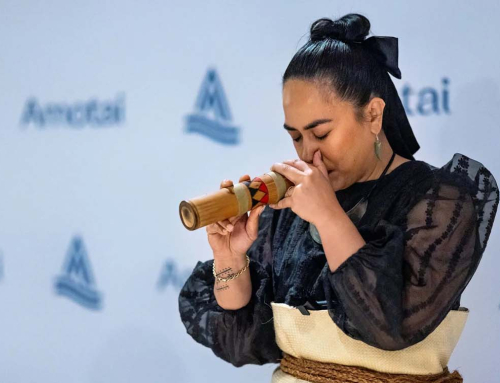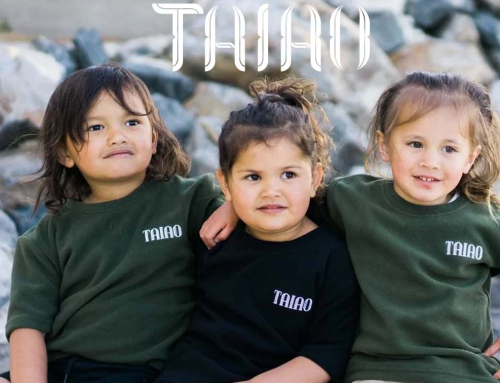Poutama Trust marked its 30th anniversary in 2018 with a hākari that celebrated its continued existence, various achievements and acknowledged the contributions of past and current clients, staff and board members. This article takes a look at some of the background to Poutama Trust’s establishment in 1988 by the Crown, how and why it came to be established, and its initial aims and objectives compared to how Poutama operates today.
In 1984 the Minister of Māori Affairs the Hon. Koro Wetere, convened the Hui Taumata (Māori Economic Summit Conference) to address concerns raised by Māori about the growing socio-economic gap between Māori and Pākehā[1]. As a result of these concerns and the high-level objectives agreed at the summit, one of the key developments was the dual establishment of the Māori Development Corporation (MDC) and Poutama Trust (Poutama) in July 1988. An examination of Poutama’s beginnings also needs to include a discussion of the MDC which is where this begins.
MDC’s objectives were to provide financial resources for the development and enhancement of Māori businesses, Māori assets and the financial and business skills of Māori people[2]. Its focus would be purely commercial in providing loans or taking equity stakes (minimum of $100,000) in viable commercial Māori business projects as well as providing appropriate development and investment banking services[3]. The five original shareholders in MDC were: the Crown $13m, Māori Trustee $7m, Brierley Investments Ltd (BIL) $2m, Fletcher Challenge (FCL) $2m and Development Finance Corporation (DFC) $2m[4]. These foundation shareholdings were to change over time and subsequently in 1992 BIL sold its $2m shareholding to Taharoa C Block (a Tainui incorporation) and FCL sold its $2m shareholding to Tainui. In 1993 the Māori Trustee also sold its $7m shareholding to Taharoa C Block. In 1989 DFC was placed into statutory management by the Crown and subsequently liquidated in 1993. Poutama acquired DFC’s $2m shareholding in MDC in 1993.
Poutama was established at the same time as MDC in 1988 with a $10m grant from the Crown and was described as a social vehicle that would fund ‘non-commercial’ activities such as feasibility studies, market research, consultancy services and skills upgrading to complement MDC’s commercial activities. Poutama was not expected to provide a commercial return to the Crown whereas MDC had been expected to provide dividends[5]. Poutama’s services were targeted at small to medium business enterprises (SME’s) which was a different market to MDC who was targeting medium to large Māori enterprises (MLE’s). Poutama provided support to SME’s of up to 50% with the SME contributing the other 50% themselves.
It was during this period that the shareholdings in MDC were changing, and in 1993 as a part of its asset sales program, the Crown signalled its intention to sell its shareholding in MDC[6]. During that year the Crown had also been approached by several iwi who were interested in acquiring the Crown’s $13m shareholding in MDC. The Crowns signalling of its intention to sell sparked a request for an urgent Waitangi Tribunal (the tribunal) hearing by three groups who claimed the sale was a potential breach of the Crown’s Treaty of Waitangi (treaty) obligations. The claimants argued that MDC and Poutama had been created by the Crown for the benefit of all Māori in seeking to address: (i) the economic devastation inflicted on Māori society as a result of Crown actions that breached the treaty; (ii) the growing socio-economic gap between Māori and Pākehā[7]. The claimants further argued that Māori economic development had not yet reached a stage where Māori could actively and confidently participate in the commercial sector and that there still remained a need for a treaty-based mechanism to perform those functions for which MDC was originally created.
The Tribunal granted an urgency hearing in 1993 and subsequently made a number of findings, of which a number were key in respect of Poutama[8].
- That both MDC and Poutama had indeed been created as ‘treaty settlement mechanisms’ to provide redress for all Māori for past breaches of the Treaty of Waitangi.
- That the Crown should consider selling its shareholding to a pan tribal organisation for the benefit of all Māori and that Poutama was a strong contender for that role.
- That if the Crown sold its shareholding in MDC to a small number of Māori groups as had been signalled, it would be to the detriment of all Māori and therefore a breach of its treaty obligations again.
- That if the Crown proceeded with a sale, that $5m of the original $13m invested by the Crown in MDC was by virtue of it being the capitalisation over ten years of the 1986/87 appropriation to Māori business lending, money that belonged to all Māori. This $5m should not go back into the Crown’s general fund but be transferred to Poutama Trust for the benefit of all Māori.
- That if a sale of MDC proceeded then the Minister was to ensure that Poutama was distanced from MDC in all future matters including its objects and appointment of directors.
Despite the Waitangi Tribunal’s 1993 findings and recommendations, in 1996 the Crown proceeded with the sale of its shareholding in MDC to Waikato Tainui for approximately $21m. This sale by the Crown of its $21m shareholding to Waikato Tainui effectively meant that they now owned 100% of MDC which was subsequently subsumed into their iwi investment organisation. At that time the Crown also transferred $5m of the sales proceeds to Poutama as per the Waitangi Tribunal’s 1993 findings. Poutama also sold its shareholding in MDC for $2m and so this together with the $5m injection from the Crown bolstered its balance sheet by $7m.
Whilst Poutama’s original role was envisaged by the Crown as a social vehicle, its 1988 trust deed stated that its intention was to “promote industry and commerce amongst the Māori people of New Zealand in a market economy[9].” Poutama’s trust deed also provided the trustees with general powers (with respect to its corpus) contained within the Trustee Act 1956 to invest, lease, sell, carry on business, borrow, promote, employ, appoint directors of subsidiary companies etc[10]. Poutama’s business model and focus has evolved from providing individual grants to SME’s to embarking on new collaborative projects that seek to work with multiple Māori organisations in industry clusters. One such recent example is the Kawerau dairy project (Waiū) which commissioned its new dairy plant in May of this year. It is a $35m project and is 66% owned by local Māori organisations and Poutama. It will employ 30-35 people largely from the local community. We can see that Poutama’s kaupapa has evolved over time to adapt to the changing needs of business and Māori.
A significant learning from the research for this article has been finding out from the Tribunal’s 1993 report on the urgency hearing, that Poutama was created as a treaty settlement mechanism.
Given the history of Poutama, it is highly likely that any future plan by the Crown to re-structure Poutama without undertaking significant consultation with Māori, or to unduly influence Poutama would be met by a claim to the Waitangi Tribunal. Poutama’s establishment as a treaty settlement mechanism must allow it to function independently of political influence, and Māori must be included in determining any changes to Poutama’s structure and objectives. The outlook for Māori business and the Māori economy looks bright and the hope is that Poutama will continue to make a significant contribution for all Māori as its kaupapa adapts and evolves into the future.
[1] See Māori Development Corporation Report Waitangi Tribunal Report (Wai 350), GP Publications, 1993: p 7.
[2] See Wai 350, p 17.
[3] See Wai 350, p 18.
[4] See Wai 350, p 19.
[5] See Wai 350, p 18.
[6] See Wai 350, p 23.
[7] See Wai 350, p 25.
[8] See Wai 350, p 51-53.
[9] Poutama Trust Deed dated 5 July 1988, p 1.
[10] Poutama Trust Deed dated 5 July 1988, p 6.






